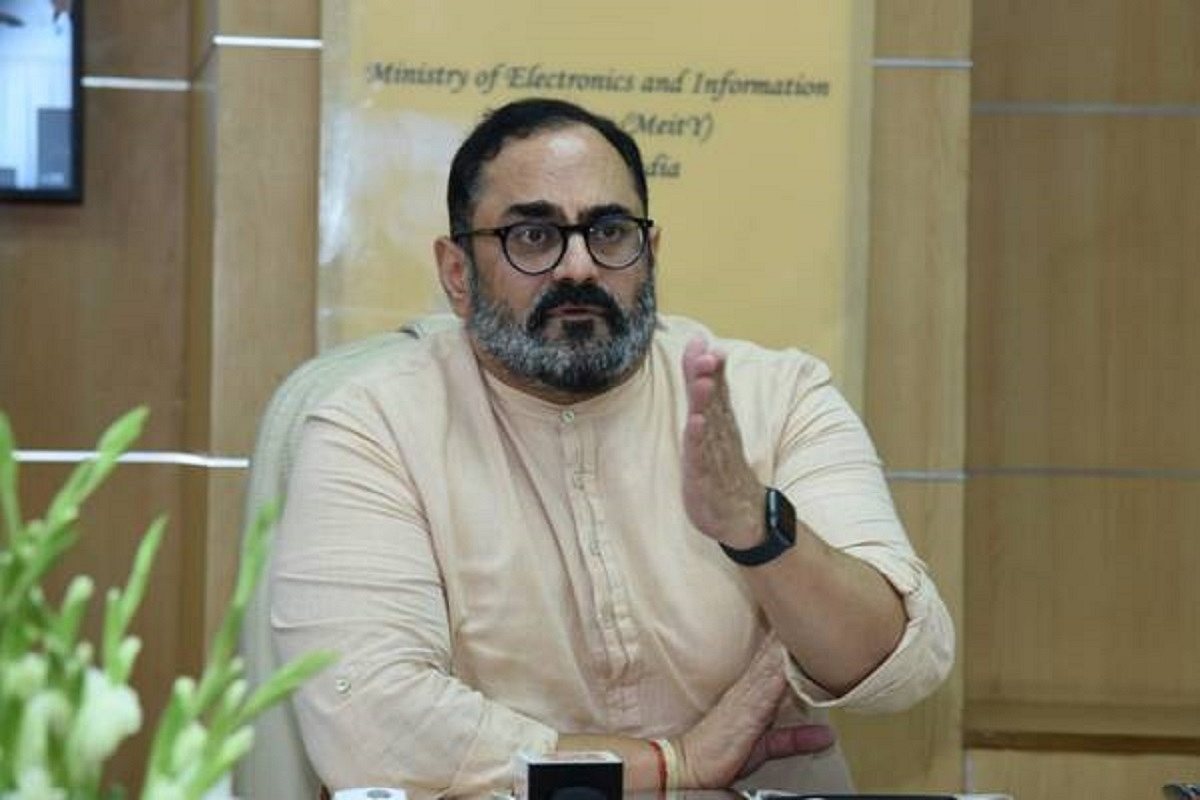Technology
India Should Set Its Own Standards For Future Technologies, Not Borrow From EU, US: MoS IT

Union Minister of State for Electronics and Information Technology Rajeev Chandrasekhar.
Union Minister of State for Information Technology Rajeev Chandrasekhar has said that India should strive to set up its own standards for future technologies instead of borrowing them from the European Union or the United States.
During an interaction with students, startups, and prominent citizens from in Bengaluru on Saturday (12 August), the minister said that the Digital Personal Data Protection Act, which was recently approved by the President, is "a world-class legislation".
He elaborated on how this law integrates into a broader mission aligned with Prime Minister Narendra Modi’s vision, which aims to establish contemporary and relevant laws tailored to Indian requirements along with platform obligations.
“The forthcoming companion legislation is known as the Digital India Act, which is set to replace the 22-year-old IT Act. The Digital India Act will deal with the whole ecosystem of technology," he added.
The Minister noted that earlier data privacy conversations in our country used to start and end with the General Data Protection Regulation (GDPR).
"It was almost a trend to regard anything foreign as the best. But we decided to design an Indian bill ground up instead of deriving inspiration from the GDPR," he added.
"We have looked at the Indian internet with the 830 million Indians who use the internet and by 2025-26 it will be 1.2 billion Indians. We are the largest connected country in the world. We deserve to be setting our own standards in any conversation about technology for the future rather than borrowing anything from the EU or US,” the minister said.
Speaking on the data protection law, the minister emphasised the significance of imposing substantial penalties. These penalties serve a vital purpose — to ensure industries and platforms adhere to this law.
“This law is creating a new regime. We will allow companies and industries a transitional period. The era of misuse, the era of exploitation, the era of believing that Indian citizens don’t have rights comes to an end with this law," he said.
He added that the data protection act is an important marker to catalyse the innovation ecosystem because it removes any ambiguity of what an entity is supposed to do when privacy is being declared as a fundamental right.
"In case of a citizen's data breach, they simply need to visit the website, provide the data protection board with details, and the board will initiate an inquiry, imposing penalties on the breaching platforms. We want the penalties to be punitive so that it incentivises platforms to be responsible," he added.
Support Swarajya's 50 Ground Reports Project & Sponsor A Story
Every general election Swarajya does a 50 ground reports project.
Aimed only at serious readers and those who appreciate the nuances of political undercurrents, the project provides a sense of India's electoral landscape. As you know, these reports are produced after considerable investment of travel, time and effort on the ground.
This time too we've kicked off the project in style and have covered over 30 constituencies already. If you're someone who appreciates such work and have enjoyed our coverage please consider sponsoring a ground report for just Rs 2999 to Rs 19,999 - it goes a long way in helping us produce more quality reportage.
You can also back this project by becoming a subscriber for as little as Rs 999 - so do click on this links and choose a plan that suits you and back us.
Click below to contribute.
Latest